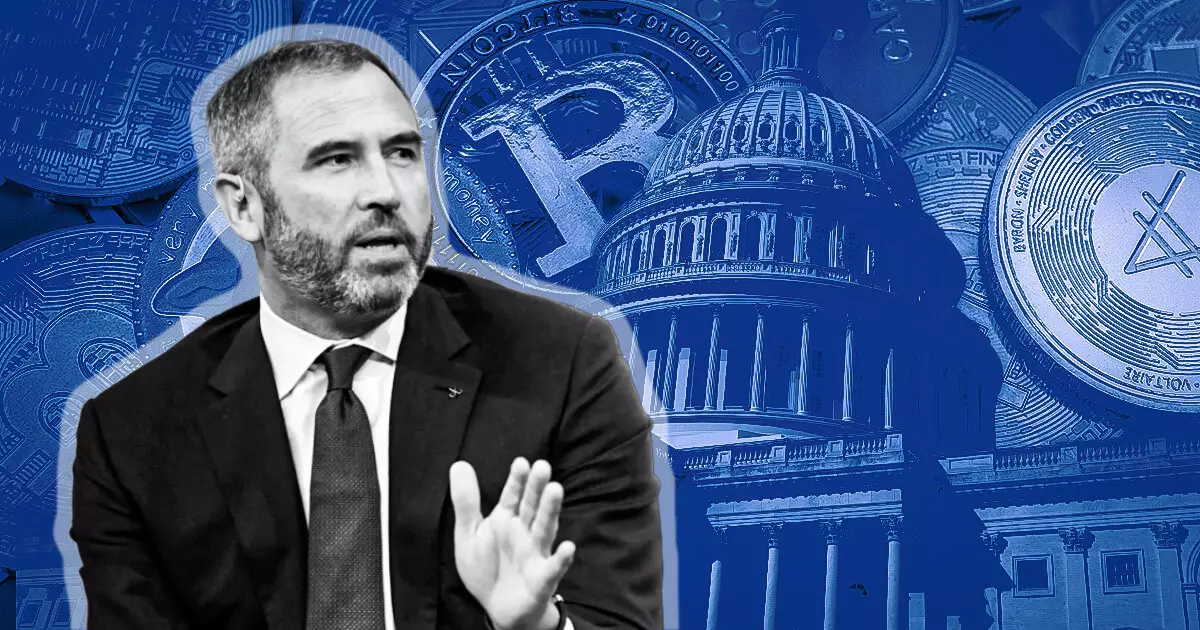Ripple (XRP) CEO, Brad Garlinghouse, continues his relentless efforts towards achieving regulatory clarity in the cryptocurrency industry. On September 19, Garlinghouse, alongside other top executives from Ripple, met with members of the U.S. Congress in Washington, D.C. The purpose of their visit was to engage with elected officials who are currently proposing bills related to the crypto sector.
Garlinghouse took to social media platform X (formerly Twitter) to share the details of their visit. In his post, he emphasized the importance of direct engagement with lawmakers, stating, “Can’t get regulatory clarity without actually engaging with the elected officials who are proposing bills!”
Stuart Alderoty, Ripple’s Chief Legal Officer, also confirmed their visit to the U.S. Supreme Court in a separate post on X. Alderoty highlighted the significance of maintaining checks and balances in the industry while awaiting legislative clarity. He expressed that regulatory uncertainty should not impede the implementation of necessary safeguards.
Garlinghouse further shared a photo on social media, showing him and Alderoty in front of the U.S. Securities and Exchange Commission (SEC). Although the post clarified that they did not meet with SEC Chairman Gary Gensler, it remains unclear whether they had discussions with any other officials from the regulatory body.
The post garnered significant attention and support, accumulating over 10,000 likes and a staggering 755,000 views within just 13 hours.
Garlinghouse’s visit to D.C. follows Ripple’s partial victory in July, when a judge ruled that the sale of XRP and token distributions by Ripple did not constitute an offer and sale of an investment contract. However, the SEC filed an interlocutory appeal to challenge this ruling, resulting in ongoing legal proceedings.
Meanwhile, the regulatory landscape for the crypto industry in the United States remains uncertain. Major cryptocurrency companies like Binance and Coinbase have faced enforcement actions from financial regulators, including the SEC and the Commodity Futures Trading Commission (CFTC). This lack of clarity has prompted several lawmakers to take initiatives in developing legislation to provide regulatory certainty for digital assets.
One notable legislative effort is Senator Elizabeth Warren’s bipartisan cryptocurrency anti-money laundering bill, which recently gained support from other lawmakers. This bill aims to address concerns regarding the potential misuse of cryptocurrencies for illicit activities. As the cryptocurrency market continues to evolve, regulatory frameworks become imperative to ensure responsible and secure financial practices.
With Ripple’s CEO at the forefront, the push for regulatory clarity in the cryptocurrency industry gains momentum. Engaging directly with lawmakers allows industry leaders to contribute their expertise and advocate for balanced regulatory measures.
The outcome of Ripple’s ongoing legal battle with the SEC will undoubtedly have a profound impact on the industry. As the United States grapples with defining clear regulations, it is crucial for both regulators and industry participants to work collaboratively towards establishing a transparent and fair regulatory framework that fosters innovation while protecting investors and consumers.
Through continued dialogue and active engagement, the path towards regulatory clarity becomes clearer, bringing greater confidence and stability to the ever-growing cryptocurrency ecosystem.


Leave a Reply